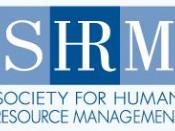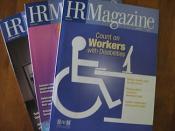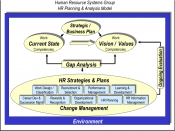1. Introduction
Human Resource Management (HRM) is a distinctive approach to manage people. People make a business function efficiently and yet they cause the greatest difficulties. Especially in the new information-based economy, people, not physical assets, are now critical. But people, unlike coalmines and factories, cannot be owned. Organizations therefore must create an environment that makes the best people want to stay.
In this regard, Training and Development (T&D) can be the most important HRM function to treat people well and increase the competitive power for the organizations. Training refers to improving competencies needed today or very soon. In comparison, development refers to activities intended to improve competencies over a long period of time (Jackson & Schuler, 2003, p350-351). Training and development, although different from their focus, are of course closely related to influence the individuals and firms. In this respect lots of authors have paid more attention on this issue.
Following, the papers open by a review of literature, and conduct critical review on TCL Corporation's practice compared with the literatures.
2. Literature review
T&D's primary, traditional roles have been to insure that the workforces are provided with the knowledge, skills and attitudes necessary to perform a given function well (Harrison, 1993) (Stone, 2002, p344-348) (Pinnington & Edwards, 2000, p186-190) (Price, 2001, p325).
To employees, T&D provide the means of maintaining their own competition by improving knowledge, skills and abilities (Lane & Robinson, 1995). To shareholders, T&D can be seen as foundation to meet the profit targets (Pfeffer & Veiga, 1999). Some benefits of basic skills training include increased productivity, higher quality products, reduced absenteeism, and increased commitment and job satisfaction (Washburn & Franklin, 1992).
In terms of some authors (Jackson & Schuler, 2003, p360-392) (Ivancevich & Lee, 2002, p156-184), the HR managers should conduct T&D basically in...



Its a very good and persuasive informative piece
i like the way writer use his or her skill in developing this essay
0 out of 0 people found this comment useful.